Photos, promos, papers, and more: anything you want can be shared with the Notre Dame GPAS community using our new content submission form! (must be signed in with your ND Google account). We know forms can be scary and confusing sometimes, so here’s a walk through exactly how to get your content featured on our website.
How it works:
Posting on the website is a great way to get involved with GPAS media, with no commitment required. After you submit, we’ll edit, tag, and post your content as necessary. We’ll also include author attribution on all the photos and articles we post, so feel free to flex your artistic skills and writing prowess as much as you like; the credit is all yours! Here’s the things you can submit using our form right now:
Event Flyers
That beautiful flyer you made deserves more than just getting taped to the stairwell door. Put it up on our Events page so people anywhere can see it! Upload a PDF in portrait orientation, and we’ll add it to the rotation of upcoming event listings on our site.
Announcements
Exciting new projects, awards, updates, collaborations, anything! Share your big news with the GPAS community and get some writing practice while you’re at it! You choose the title, write your article, and even submit photos if you like. Your article will be posted on our News page for all to see!
Photos
Show off your photos from GPAS or other Physics & Astronomy Department events! We’ll collect the images you upload and put them all together in an Event Recap article. Even if we’ve already posted photos from an event, we can still add yours no problem. It doesn’t matter when you submit, it just matters that you do! Our upload form is a little finicky right now because it can only handle you uploading 10 photos at once. If you’ve got more than that, you can just fill out the form again.
Student & Faculty Spotlight
There are a lot of awesome people in our department. Spotlight gives you a chance to introduce them to us all and showcase what makes them great! First, choose someone you think is especially awesome. Share their accomplishments with us, just let us know why you think they’re so cool. Once they’ve been nominated, we’ll reach out to them to learn more and write an article that shows why they deserve their very own Spotlight.
Paper Spotlight
A journal club for everyone! Did you or someone you know submit a paper recently? Was there an abstract on arXiv that struck your fancy? Want the opportunity to write a summary of a classic paper in your field? Maybe you’ll help others understand it better. Maybe you’ll even help *you* understand it better! Give us some information about the paper, and a summary in your own words, and we’ll feature your article on our News page.


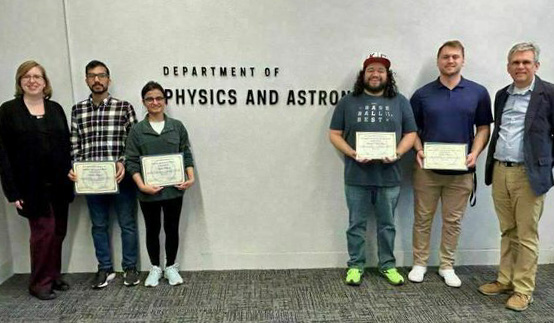

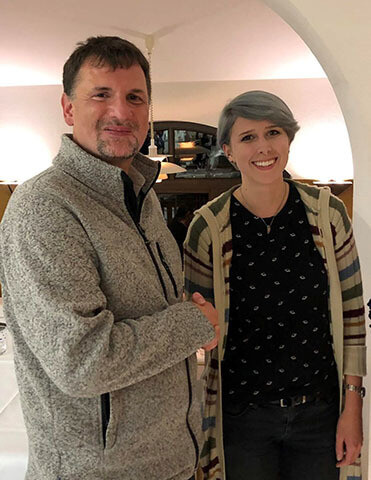
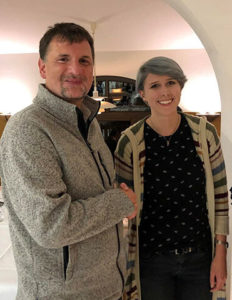

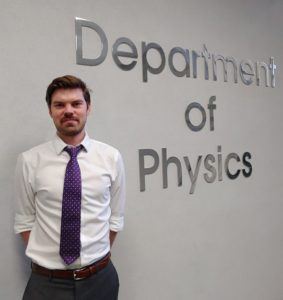
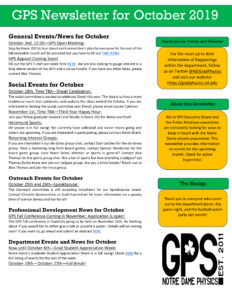
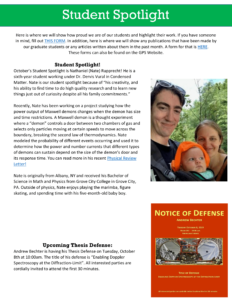
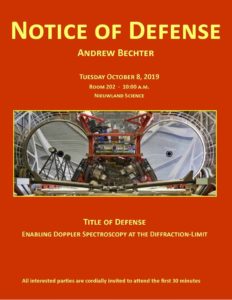
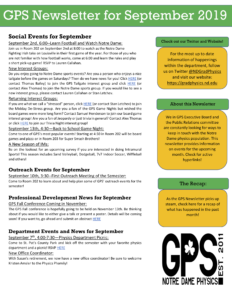
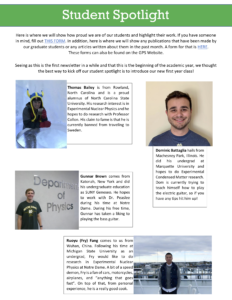
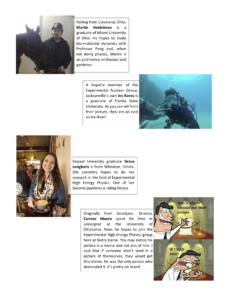
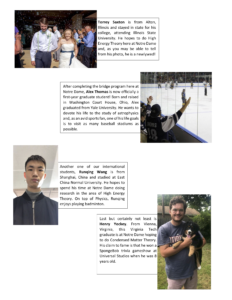
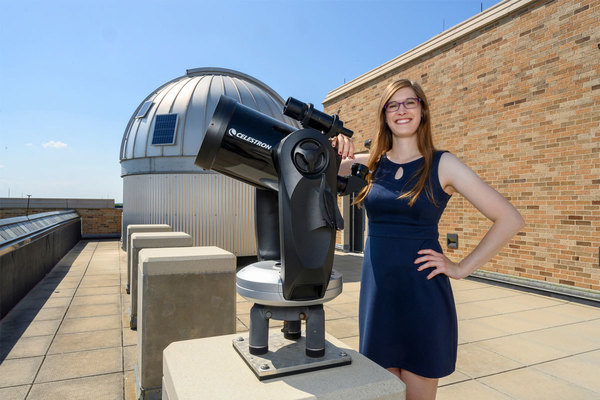
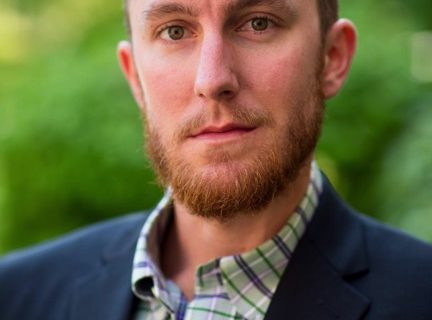
 In high school, I scoffed at the idea of putting more effort into my humanities classes because I thought a smart person like me should pursue only the hardest subjects, and surely those were not them! In college, still interested in science but only pretending to have my priorities straight in a new world of opportunity, my scientific endeavor continued. I just wanted to do something challenging, without much thought as to why I was doing it.
In high school, I scoffed at the idea of putting more effort into my humanities classes because I thought a smart person like me should pursue only the hardest subjects, and surely those were not them! In college, still interested in science but only pretending to have my priorities straight in a new world of opportunity, my scientific endeavor continued. I just wanted to do something challenging, without much thought as to why I was doing it.